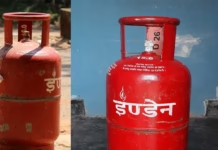Land may appear static, but its value, use, and legal identity evolve constantly. A single miscalculation in its boundary can lead to legal conflicts or financial loss. Enter the era of intelligent tools that don’t just observe the land but understand it. Among these tools, real estate land survey apps are transforming how plots are measured, managed, and monetized.
The Silent Revolution in Parcel Mapping
Traditional surveying needed tripods, bulky equipment, and teams of experts. Now, a mobile phone can execute complex geospatial tasks. These apps integrate satellite data, AI-driven analytics, and augmented reality overlays to provide instant mapping accuracy, even in irregular or disputed terrains. This shift drastically reduces project costs while increasing confidence among developers and investors.
From Ownership Disputes to Digital Certainty
Land disputes drain money, time, and trust. Real estate land survey apps allow owners and developers to create immutable digital boundaries. With blockchain-backed logs and GPS-stamped coordinates, ambiguity fades. These records serve as legal anchors during transactions or litigation, strengthening title verification and reducing reliance on outdated paper documents.
When Algorithms Walk the Land
These apps don’t just record; they interpret. Using machine learning, they recognize anomalies in terrain, identify topographic patterns, and offer recommendations. Some even simulate drainage, slope risks, and access paths before a single stone is moved. It’s no longer about “where” the land lies, but “how” it behaves under practical, environmental, and economic conditions.
Remote Surveys in Real-Time
Site visits are no longer mandatory. With drone integration and satellite sync, a land parcel in a remote village can be surveyed from a corporate office hundreds of kilometers away. Developers now assess, acquire, and negotiate lands without boarding a flight. This boosts international land trade and speeds up rural infrastructure investments.
AR for the Dirt Beneath
Augmented reality isn’t just for games. Real estate land survey apps now project 3D models of terrain on screens through phone cameras. By overlaying property lines or utility grids on live surroundings, these apps turn invisible legal descriptions into visible, interactive maps. This makes interpretation simple even for those without a technical background.
Land Assessment Meets Financial Modelling
Some platforms go beyond boundary surveying. They provide zoning analysis, proximity valuations, and predicted land appreciation using market heatmaps. Investors no longer gamble—they forecast. These projections empower better negotiations and enable land flipping strategies that are data-backed, not instinct-driven.
Urban Development Starts with a Swipe
For municipalities and smart city planners, these tools are becoming essential. By consolidating property layers, elevation data, and utility access into a unified interface, planning boards can make zoning adjustments or road expansions with foresight. Each click reduces bureaucratic friction and eliminates manual errors in city modeling.
Rural Empowerment Through Localization
What works in a metro doesn’t always suit a farm. Modern apps now include vernacular language interfaces, offline capability, and soil health integrations. This empowers rural users to conduct surveys independently, apply for bank loans, or resolve neighborly disputes using digital proofs—even without internet access.
Disaster Risk Forecasting at the Plot Level
Flood plains, landslides, and erosion aren’t random—they follow patterns. With layered geospatial intelligence, some apps alert users about susceptibility before purchasing land. This added layer of foresight ensures that development doesn’t turn into disaster recovery. It also reassures insurance agencies while pricing premiums.
Environmental Compliance Made Easy
Green certifications and ecological permits often delay real estate projects. However, these apps now include features that scan whether land is within forest reserves, heritage zones, or coastal regulation buffers. Developers can make informed decisions early, reducing the risk of fines or project abandonment due to non-compliance.
Download App
Integration with Smart Contracts
The complex tangle of documentation in real estate can challenge even the most experienced professionals. Survey apps with blockchain integration now trigger smart contracts based on verified GPS readings. A successful boundary scan can release payments, initiate title transfers, or generate tax statements—automatically. The bureaucracy gets replaced by code, saving months of legwork.





